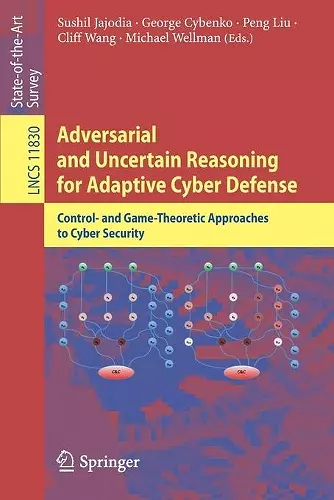Adversarial and Uncertain Reasoning for Adaptive Cyber Defense
Control- and Game-Theoretic Approaches to Cyber Security
Peng Liu editor Michael Wellman editor Sushil Jajodia editor Cliff Wang editor George Cybenko editor
Format:Paperback
Publisher:Springer Nature Switzerland AG
Published:2nd Sep '19
Currently unavailable, and unfortunately no date known when it will be back

Today’s cyber defenses are largely static allowing adversaries to pre-plan their attacks. In response to this situation, researchers have started to investigate various methods that make networked information systems less homogeneous and less predictable by engineering systems that have homogeneous functionalities but randomized manifestations.
The 10 papers included in this State-of-the Art Survey present recent advances made by a large team of researchers working on the same US Department of Defense Multidisciplinary University Research Initiative (MURI) project during 2013-2019. This project has developed a new class of technologies called Adaptive Cyber Defense (ACD) by building on two active but heretofore separate research areas: Adaptation Techniques (AT) and Adversarial Reasoning (AR). AT methods introduce diversity and uncertainty into networks, applications, and hosts. AR combines machine learning, behavioral science, operations research, control theory, and gametheory to address the goal of computing effective strategies in dynamic, adversarial environments.
ISBN: 9783030307189
Dimensions: unknown
Weight: unknown
263 pages
2019 ed.